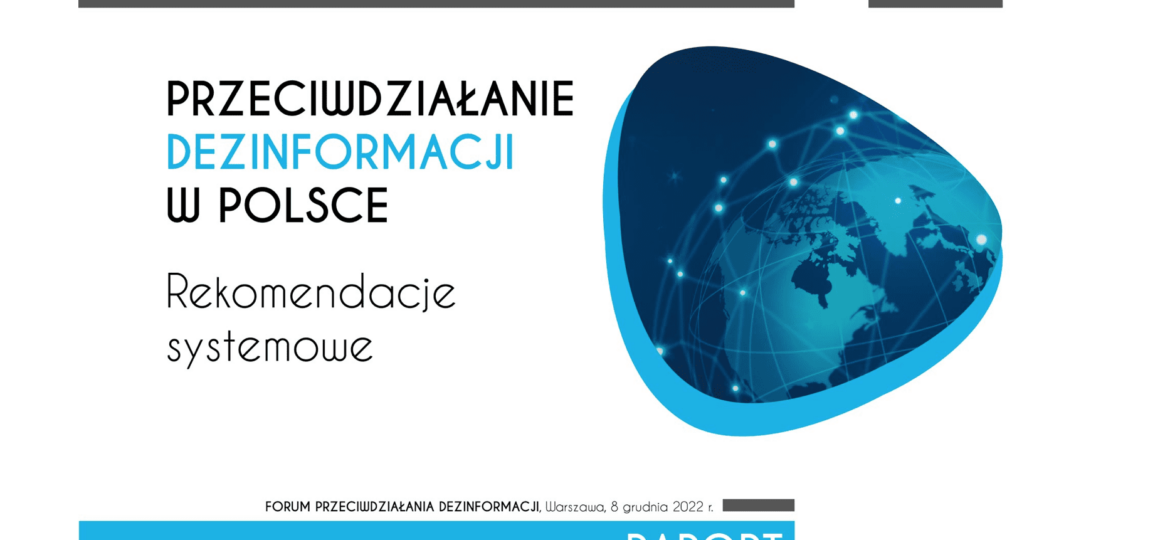
Nearly 40 independent Polish experts have jointly developed a REPORT containing more than 60 systemic recommendations for countering disinformation in Poland. This is a grassroots civic initiative. Its purpose is to show how we can protect ourselves from the information threat, which is having an increasingly strong impact on Poles. This is especially important today – the threat of disinformation will grow before the elections in Poland.
Disinformation affects not only the individual security of each of us but also how the state and society function. Experts are sounding the alarm – although often invisible, this threat is changing our lives. To address it, systemic solutions and state involvement are needed. The war just across the eastern border, the experience of a pandemic, the constantly sharpening tone of the public debate and increasing polarization – it is often difficult to find one’s way around in the flood of information. We believe information reported on social media, heard from friends and glimpsed from the corner of our eye on the Internet. This is a breeding ground for disinformation and actions that undermine the foundations of democratic order. And this is especially important in an election year – the first of several ahead.
“If we want to live in a democratic state, we need to fight disinformation seriously, strategically and for the long term,” adds Anna Mierzynska, a disinformation analyst and the substantive leader of the Forum Against Disinformation.
How to do it? Experts gathered at the Forum Against Disinformation discussed this problem. The result of their work is the set of recommendations collected in the report “Counteracting Disinformation in Poland – System Recommendations.” The key takeaway: in order to effectively combat disinformation, a systemic approach is needed, covering such areas of public life as education, public attitudes and the legal framework. A clear strategy for dealing with this threat is also necessary.
Key recommendations for specific areas:
- The state and its institutions: strengthening civil society and direct democracy institutions in the fight against disinformation, especially during election campaigns;
- Regulation: introducing EU rules related to digital services, blocking the possibility of making money online from disinformation, strengthening the State Election Commission and arming this institution with tools to fight disinformation;
- National security: institutionalizing the fight against disinformation, both structurally and legally, and creating a more active positive role for the services in building awareness of how this threat;
- Education: recognizing disinformation as a social threat, creating and integrating media education into the curriculum, enabling people to learn how to handle information;
- Information space: development of standards for handling information – including verification – in the media, reduce the impact of web traffic on the financial situation of the media, which would result in a reduction in the importance of “fast information.”
- Sociology and psychology of disinformation: permanent social dialogue and a long-term campaign to build public awareness of disinformation, securing funding for these activities.
The team preparing the Report included members of the CEDMO team: Dr. Katarzyna Bakowicz of SWPS University, editor Grzegorz Rzeczkowski of Newsweek and Collegium Civitas, and Dr. Karina Stasiuk-Krajewska, prof. at the SWPS University. The Report was introduced during a discussion that included Grzegorz Rzeczkowski.